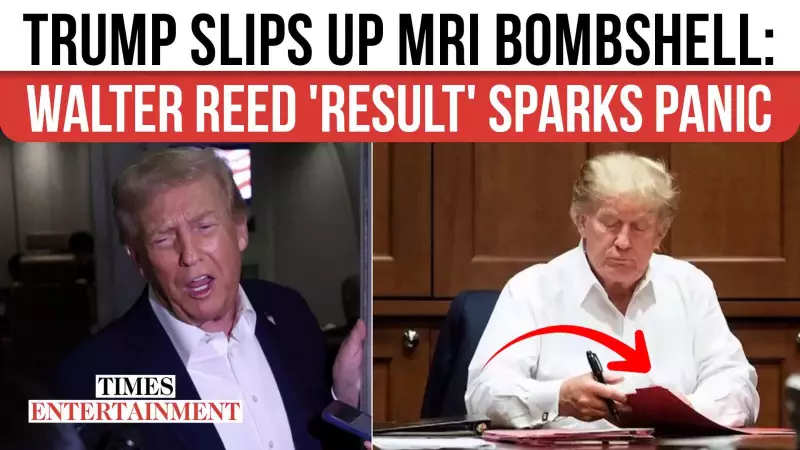
In a revealing moment that has caught medical experts and political observers by surprise, former US President Donald Trump inadvertently disclosed details about his recent medical examination that go beyond a standard routine checkup.
The unexpected admission came during what was supposed to be a standard physical evaluation at the prestigious Walter Reed National Military Medical Center. Trump confirmed he underwent an MRI scan as part of his medical assessment, a detail that typically wouldn't be part of a basic presidential physical.
What Does an MRI in a Routine Physical Really Mean?
Medical professionals note that MRI scans are not standard procedure for routine physical examinations. These sophisticated imaging tests are usually ordered when doctors suspect specific health issues or want to investigate particular symptoms more thoroughly.
The inclusion of an MRI scan suggests there may have been concerns requiring deeper medical investigation than what a typical annual checkup would entail.
Walter Reed's Presidential Connection
Walter Reed Medical Center has long been the go-to facility for presidential medical care, serving multiple US presidents throughout history. The center's comprehensive medical capabilities make it ideal for handling the unique healthcare needs of current and former commanders-in-chief.
This isn't the first time Trump's medical transparency has been questioned. During his presidency, his physicians faced scrutiny over their descriptions of his health status, particularly after a controversial 2019 visit to Walter Reed that the White House initially described as a routine checkup.
Why This Medical Revelation Matters
The timing and nature of this disclosure raise important questions about:
- Transparency in presidential health reporting
- The actual scope of "routine" physical examinations for public figures
- What medical information should be disclosed to the public
- How previous health statements align with current revelations
This medical slip-up provides fresh insight into the ongoing discussion about how much the public should know about the health of their current and former leaders, especially those who remain active in political life and may seek future public office.





